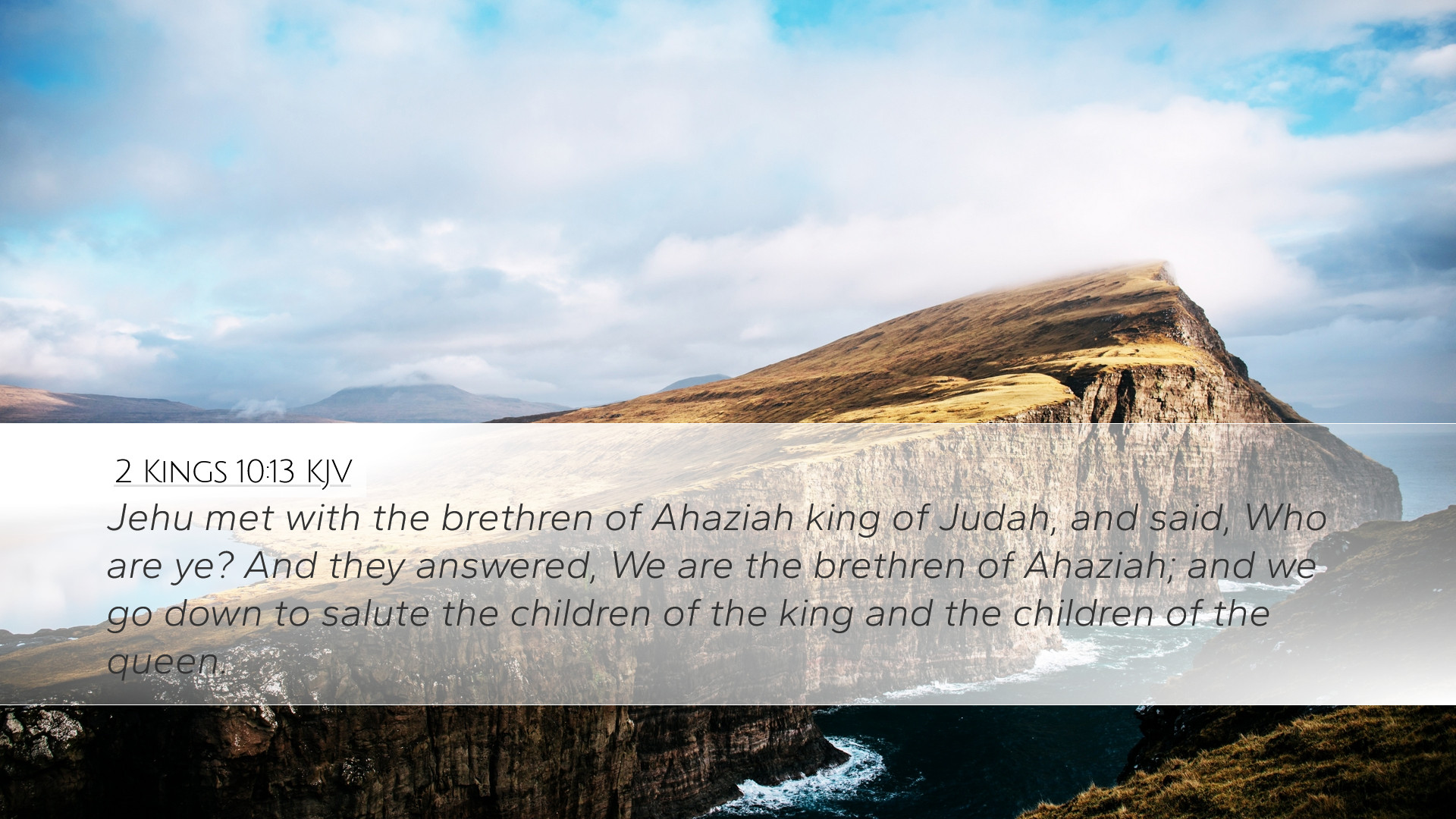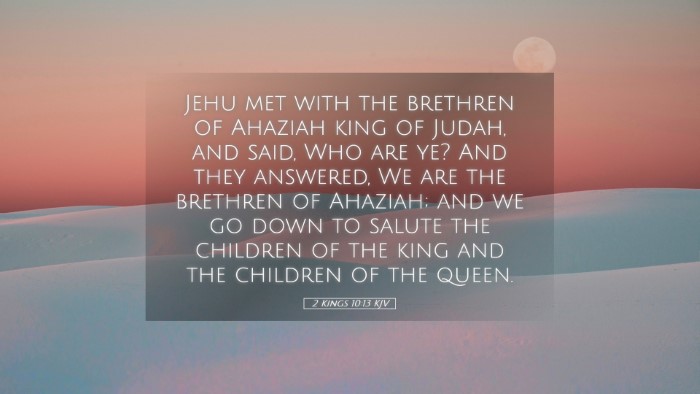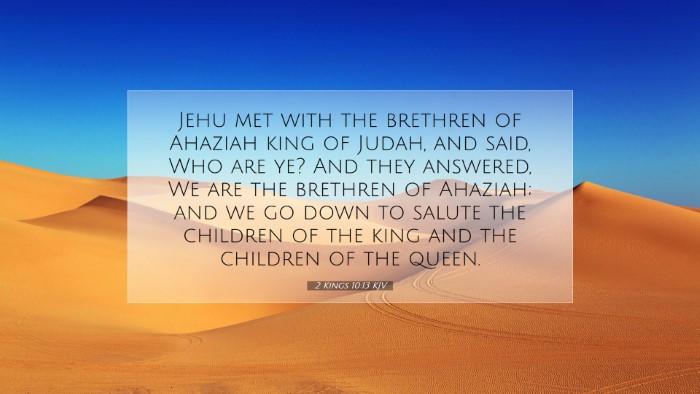Commentary on 2 Kings 10:13
Verse: "And Jehu met with the brethren of Ahaziah king of Judah, and said, Who are ye? And they answered, We are the brethren of Ahaziah; and we go down to salute the children of the king and the children of the queen." (2 Kings 10:13, KJV)
Contextual Background
The context of 2 Kings 10 involves the consolidation of Jehu’s rule over Israel following the divinely sanctioned slaughter of the house of Ahab. This pivotal moment occurs amidst political upheaval and demonstrates Jehu’s aggressive stance towards eradicating Baal worship and the remnants of Ahab’s dynasty. Jehu's encounter with the brethren of Ahaziah is a significant episode showing his ruthlessness and the political tensions of the time.
Insights from Commentaries
Matthew Henry's Commentary
Henry highlights the severity of Jehu’s actions, noting that he received the brethren of Ahaziah with a question that exposes their naive intentions. Despite their claims of being messengers bringing greetings to the king's children, Jehu employs this encounter not only as a political maneuver but as an opportunity to further his own agenda against the house of Ahab.
Henry emphasizes the irony in the brethren's mission, believing they were bringing good tidings while Jehu had just been enacting God’s judgment upon their relatives. This stark contrast underlines the theme of divine justice versus human misunderstanding, as those involved remained unaware of the true nature of Jehu’s intents, illustrating a common human tendency to misjudge situations.
Albert Barnes' Notes
Barnes offers a perspective on the implications of Jehu’s question, "Who are ye?" showcasing the duplicity inherent in the roles of the leaders of Israel and Judah. The brevity of the encounter reflects the tensions between these two kingdoms, especially as Ahaziah, the king of Judah, was a descendant of those whom Jehu had just condemned.
Moreover, Barnes notes that the brethren's response indicates the potential alliances and familial connections that existed despite the political turmoil. Their journey to pay respect is tragically thwarted, underscoring the fragility of human relationships in the face of divine intervention and judgment.
Adam Clarke's Commentary
Clarke provides an analysis of the theological dimensions of this passage. He points out that Jehu’s encounter is emblematic of God's sovereignty and the fulfillment of His judgment against idolatry. The brothers’ ignorance of the unfolding events plays a critical role in understanding the broader narrative of God's dealings with Israel.
He also reflects on the significance of the phrase "brethren of Ahaziah," which illustrates the kinship ties that characterize ancient Israelite society. This detail further emphasizes the tragedy of the situation, where familial loyalty does not guarantee safety in a time when the wrath of God is being enacted through Jehu.
Theological Implications
The events surrounding 2 Kings 10:13 raise critical theological themes relevant to ministers, students, and scholars:
- Divine Sovereignty: Jehu's actions demonstrate God’s control over historical events, as he fulfills prophecy regarding the eradication of Ahab's lineage.
- Consequences of Idolatry: The narrative serves as a stark reminder of the consequences faced by nations engaged in idolatry, reflecting the justice of God's judgment.
- Covenant Relationships: The encounter illustrates the complexities of covenant relationships in ancient Israel, where kinship ties did not provide immunity from divine justice.
- Human Misunderstanding: The brethren's miscalculation is a poignant reminder of how individuals can be oblivious to the divine workings behind the scenes.
Practical Applications
From this verse, several practical applications can be discerned:
- Awareness of God’s Work: Believers are encouraged to remain vigilant and aware of God’s actions in the world and within their communities. Understanding that God may be orchestrating events that are beyond our immediate comprehension is vital for spiritual maturity.
- Accountability for Leadership: Leaders must recognize their responsibility in guiding others toward righteousness and ensuring they do not lead them unwittingly into danger.
- The Importance of Discernment: The narrative teaches the importance of discernment in relationships and situations. Not all who appear friendly or benign may have benevolent intentions.
Conclusion
2 Kings 10:13 serves as a powerful reminder of the unfolding drama of God’s redemptive plan and the often tragic consequences of human actions within that plan. The insights provided by renowned commentaries illuminate the profound truths contained within this brief encounter, challenging readers to reflect on their understanding of divine justice, human relationships, and the sovereignty of God.


